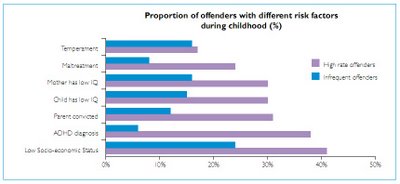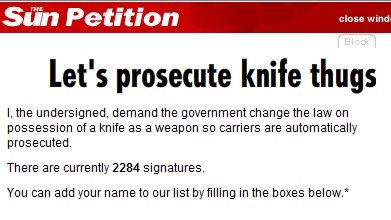Fear, panic and politics win yet again.
On the face of it, the ACMD is justifying its quick decision on the grounds that 4-MMC, rather than being an actual new drug, is rather more simply an amphetamine masquerading as a designer drug. The precedent for classifying it more quickly than it usually would was last year's ban on "Spice", marketed somewhat similarly to how 4-MMC has been, but which has definitively been identified as containing synthetic cannabinoids. This is in difference to 4-MMC, which has been identified as being based on cathinone compounds found in khat, but as yet has not been so conclusively independently examined. Khat is also not illegal in this country, having been considered by the ACMD for possible criminalisation in the past, but felt to be "safe" enough for it be left outside classification, although cathinone and cathine themselves are classified as Class C. Spice has also been around for a lot longer than 4-MMC, having first been sold back in 2002, while 4-MMC dates only from three years ago.
A far more appropriate response from a council interested in actual evidence rather than anecdote would have been to delay making a recommendation until more research had been conducted. Indeed, it's almost certainly what the previous head of the ACMD, Professor David Nutt, sacked by Alan Johnson for criticising the government over their failure to reclassify Ecstasy following the committee's advice would have recommended. Nutt has also suggested that a new classification, a so-called Class D, should be introduced under which "new" drugs like 4-MMC could be temporarily classified until more is known about them. This would allow them to be sold but place such substances under far stricter regulation than the current free-for-all, which will incidentally continue if it is criminalised but instead mean that it will be organised crime rather than legitimate businesses in control of the supply. It's not just Nutt calling for such a change, but also the UK Drug Policy Commission, which is referring to its similar suggestion for a new emergency classification as "Category X".
With the resignation of so many members of the ACMD in protest at the sacking of Nutt and the government's general attitude towards its previous advice, the latest coming only this morning, it's difficult not to wonder whether those being pushed forward as replacements are not already more in tune with the government's favoured point of view. Even if this is a slur on their characters, then the pressure on them to make a quick decision could hardly be greater. The last month has seen what was already a stream of concern about Mephedrone turn into a veritable torrent, with the tabloids seemingly determined to whip up a moral panic, as hopefully this blog has identified. Not content with just further promoting the drug, as those supplying 4-MMC have themselves made clear the media's coverage has done, regardless of its tone, they've been actively lying about how schools supposedly couldn't confiscate it from students, selectively quoting from ministerial letters in order to continue the charade. Combined with the relatives of loved ones who believe their children have died as a result of taking 4-MMC, ignoring that almost all those who have died after using it were also taking other (illegal) drugs at the same time, politicians have had to make clear That Something Must Be Done, and will be done. Gordon Brown last week actively described an inanimate substance as "evil"; under such an atmosphere, and with an election only just over a month away, it's difficult to believe that even if the ACMD has asked for more time the government would have agreed. Instead, 4-MMC's criminalisation is to be rushed onto the statute books, and with Conservative support, seems certain to become law before the election.
This is the worst of all possible worlds. The very first step of criminalisation is that the price of the drug, which has been relative low, will sky rocket. Those that have become somewhat dependent on it, although again the evidence for this is only anecdotal, and if the drug is closer to amphetamine than methamphetamine addiction tends to be mental rather than physical (although withdrawal doesn't care which is which) will have to find the extra money to pay for it, which usually leads to acquisitive crime, or to switching to a substitute, the most likely of which are either speed or crystal meth. Due to their illegality, drugs which may well have previously been "pure" are far more likely to be doctored or watered down, potentially with far more harmful substances in the case of the former, or leading to the user needing even more in the case of the latter. As mentioned above, where previously "legal high" and drug paraphernalia shops as well as "entrepreneurs" have been supplying and selling 4-MMC, the usual lowlife will now be moving into the breach. Far be it from me to defend capitalism, but where previously the legitimate economy has at least been somewhat benefiting from the rise in popularity of 4-MMC, we're now going to see all of that growth cut off, which is clearly just the government should be doing when we're trying to pull fully clear of recession. Lastly, as 4-MMC is a so-called designer drug, there's nothing to stop a replacement being developed and appearing on the streets potentially within months, with this entire cycle repeating.
All we're doing is moving from a state of affairs where there was little known about the dangers of the drug but it was legal is to one where the position is the same but the drug is illegal. Even while the police claim that they'll be targeting "dealers", which until the criminalisation becomes law are perfectly legitimate businesses and individuals, there will still certainly be cases where recreational users will be charged and prosecuted simply for wanting to make their weekends slightly better. The very same politicians that would never argue for the prohibition of alcohol or tobacco, not just because they enjoy it themselves but also because history shows us that it doesn't work are perfectly prepared to criminalise others for their different choice of psychoactive substances. The policy of drug prohibition will one day be seen in exactly the same terms as that of alcohol prohibition, but it won't be until at least the last generation either retires or is removed from power.
Labels: 4-MMC, Advisory Council on the Misuse of Drugs, David Nutt, drug policies, drug prohibition, drugs, media hysteria, Mephedrone, moral panics, politics, war on drugs





